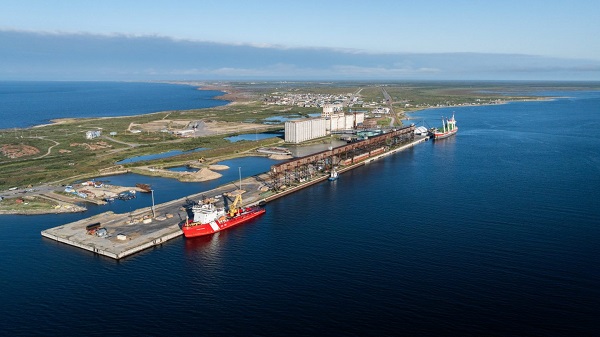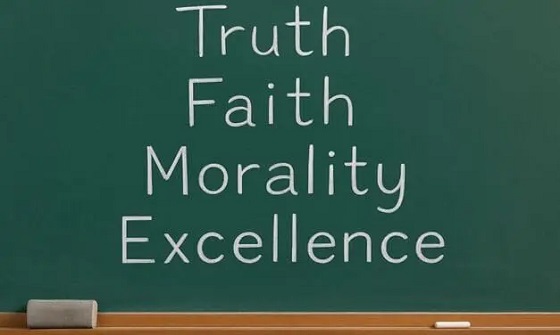Economy
MP Earl Dreeshen explains opposition to budget and support for plan to replace the Carbon Tax

Submitted by Red Deer – Mountain View MP Earl Dreeshen
In Touch with MP Earl Dreeshen
2021 has continued to be a challenging year after a turbulent 2020. Our community as well as communities and governments around the world are navigating the COVID-19 pandemic and it has led to significant challenges. Many people are dealing with significant health effects, financial strain, mental health strain, and so much more.
I would challenge everybody to recognize that, to some degree, everyone in Canada has been affected by the pandemic. I encourage you to keep that in mind in our dealing with our neighbors and fellow community members going forward.
2021 Budget
For the first time in over two years, the Liberal Government has tabled a budget. They spent most of the pandemic, and the year prior, dodging from accountability on their spending and we can see why.
It’s clear Justin Trudeau’s election budget fails to put forward a plan to adequately fund healthcare, grow the economy, and create jobs.
Justin Trudeau’s budget is a massive letdown for Canadians. Unemployed Canadians hoping to see a plan to create new jobs and economic opportunities for their families are going to feel let down. Workers who have had their wages cut and hours slashed hoping to see a plan to reopen the economy are going to feel let down. Families that can’t afford more taxes and are struggling to save more money for their children’s education or to buy a home are going to feel let down.
This is not stimulus spending focused on creating jobs, but spending on Liberal partisan priorities backed by a $100 billion election slush fund. Unfortunately, this budget does nothing to secure long term prosperity for Canadians. Instead, what Justin Trudeau has proposed is a “reimagined” Canadian economy that dabbles in risky economic ideas, like abandoning Canada’s world leading and sustainable natural resource industries, leaving our economy in a precarious position.
For these reasons, my Conservative colleagues and I voted against the 2021 Budget. More of my thoughts on the budget can be found here
Economic Recovery
As Conservatives, we have been focused on economic recovery across Canada. We acknowledge that these times are unprecedented and additional measures were necessary. Millions of Canadians had their employment and businesses impacted and there was a responsibility to those who fell through the cracks.
However, the reason why these programs need to be extended is due to Justin Trudeau’s failure on vaccines. We are behind many of our allies on moving forward which is why it is so critical that we have a plan to recovery now, and can hit the ground running when possible.
Erin O’Toole and our team has put forward Canada’s Recovery Plan, which is focused on creating financial security and certainty. This plan will safely secure our future and deliver a Canada where those who have struggled the most through this pandemic can get back to work.
This plan will ensure that manufacturing at home is bolstered, where wages go up, and where the dream of affording a better life for their children can be realized by all Canadians.
We are focused on securing jobs and the economy for Canadians who have been left behind by Justin Trudeau.
Canada’s Conservatives got Canada through the last recession, and with Canada’s Recovery Plan, we will get Canadians through this one too.
Conservative Environment Policy
I have heard a lot of feedback already on the proposed Conservative Environment Policy.
As you might know, I have been a vehement opponent of the Liberal government’s environmental approach, and of their Carbon Tax. I have spoken in the House of Commons and other venues on many occasions about the devastating impact the Carbon Tax is having on our farmers and ranchers as well as its devastating impact on all residents of Alberta – who are literally seeing their paychecks and their savings eaten away by this ill-conceived Liberal tax.
My Conservative colleagues and I remain committed to scrapping the job-killing Carbon Tax. We also remain firmly committed to protecting and enhancing our environment – as Conservatives have always done. Conservatives have always been the party which cares the most about conserving our resources, protecting our soils and waters, while taking action to preserve the environment we live in. As Western Canadians, we all understand the need to preserve the environment for future generations.
What we don’t understand is the Liberal government’s approach which is one of big government taxing consumers and phasing out jobs at a time that we need them the most.
Our plan for the environment does include a carbon pricing mechanism. Young Canadians in particular want to see us take action on this front. And we will need a broader base of voter support than we have had in the past if we are going to form Canada’s next government.
In a nutshell, the Low Carbon Saving Account works like Airmiles or other affinity programs. When you purchase gas, your card is fully credited the carbon price. You can bank that money to eventually use on energy efficient products like new windows, hot water tanks, low emission equipment for your farm or business, etc. Businesses get their own account so they no longer pass the cost onto you the consumer as a ‘hidden carbon tax’.
A comparison I have heard is to the deposit on your cans and bottles. You pay it, but if you return the cans and bottles you get that money back. Yes, there will be upfront costs, but the costs will be less than 1/3 of the Liberal plan once fully implemented and you retain agency of every penny you put in.
One of the other major concepts is that small businesses and non-profits will be able to keep control of the money they pay, instead of the current system where these organizations subsidize the program for people in downtown Toronto who don’t have to drive to work.
The savings account idea is only a portion of the plan in total. I would encourage you to look at the whole plan if you are interested. One of the driving ideas is that we don’t want to shut down our industry just to see it end up in other jurisdictions. Our plan addresses that by being less punishing for using carbon while still incentivising more environmentally friendly practises through use of the savings plan. We will also study putting tariffs on certain products that come from places like China that do not do their part in addressing the environment, so that we are not artificially harming our own industries.
Independent analysis, conducted by Navius Research, found this plan would be expected to achieve substantially the same emission reductions as the Stephen Harper’s targets, while resulting in a boost to jobs and the economy. In addition, not a cent of consumer tax dollars will end up with bureaucrats in Ottawa.
I would ask you to take the time to read the plan in its entirety and not rely solely on media coverage.
Alberta
Upgrades at Port of Churchill spark ambitions for nation-building Arctic exports

In August 2024, a shipment of zinc concentrate departed from the Port of Churchill — marking the port’s first export of critical minerals in over two decades. Photo courtesy Arctic Gateway Group
From the Canadian Energy Centre
By Will Gibson
‘Churchill presents huge opportunities when it comes to mining, agriculture and energy’
When flooding in northern Manitoba washed out the rail line connecting the Town of Churchill to the rest of the country in May 2017, it cast serious questions about the future of the community of 900 people on the shores of Hudson Bay.
Eight years later, the provincial and federal governments have invested in Churchill as a crucial nation-building corridor opportunity to get resources from the Prairies to markets in Europe, Africa and South America.
Direct links to ocean and rail

Aerial view of the Hudson Bay Railway that connects to the Port of Churchill. Photo courtesy Arctic Gateway Group
The Port of Churchill is unique in North America.
Built in the 1920s for summer shipments of grain, it’s the continent’s only deepwater seaport with direct access to the Arctic Ocean and a direct link to the continental rail network, through the Hudson Bay Railway.
The port has four berths and is capable of handling large vessels. Having spent the past seven years upgrading both the rail line and the port, its owners are ready to expand shipping.
“After investing a lot to improve infrastructure that was neglected for decades, we see the possibilities and opportunities for commodities to come through Churchill whether that is critical minerals, grain, potash or energy,” said Chris Avery, CEO of the Arctic Gateway Group (AGG), a partnership of 29 First Nations and 12 remote northern Manitoba communities that owns the port and rail line.
“We are pleased to be in the conversation for these nation-building projects.”
In May, Canada’s Western premiers called for the Prime Minister’s full support for the development of an economic corridor connecting ports on the northwest coast and Hudson’s Bay, ultimately reaching Grays Bay, Nunavut.
Investments in Port of Churchill upgrades
AGG, which purchased the rail line and port from an American company in 2017, is not alone in the bullish view of Churchill’s future.
In February, Manitoba Premier Wab Kinew announced an investment of $36.4 million over two years in infrastructure projects at the port aimed at growing international trade.
“Churchill presents huge opportunities when it comes to mining, agriculture and energy,” Kinew said in a release.
“These new investments will build up Manitoba’s economic strength and open our province to new trading opportunities.”
In March, the federal government committed $175 million over five years to the project including $125 million to support the rail line and $50 million to develop the port.
“It’s important to point out that investing in Churchill was something that both the Liberal and Conservative parties agreed on during the federal election campaign,” said Avery, a British Columbian who worked in the airline industry for more than two decades before joining AGG.
Reduced travel time
The federal financial support helped AGG upgrade the rail line, repairing the 20 different locations where it was washed out by flooding in 2017.
Improvements included laying more than 1,600 rail cars worth of ballast rock for stabilization and drainage, installing almost 120,000 new railway ties and undertaking major bridge crossing rehabilitations and switch upgrades.
The result has seen travel time by rail reduced by three hours — or about 10 per cent — between The Pas and Churchill.
AGG also built a dedicated storage facility for critical minerals and other commodities at the port, the first new building in several decades.
Those improvements led to a milestone in August 2024, when a shipment of zinc concentrate was shipped from the port to Belgium. It was the first critical minerals shipment from Churchill in more than two decades.
The zinc concentrate was mined at Snow Lake, Manitoba, loaded on rail cars at The Pas and moved to Churchill. It’s a scenario Avery hopes to see repeated with other commodities from the Prairies.
Addressing Arctic challenges
The emergence of new technologies has helped AGG work around the challenges of melting permafrost under the rail line and ice in Hudson Bay, he said.
Real-time ground-penetrating radar and LiDAR data from sensors attached to locomotives can identify potential problems, while regular drone flights scan the track, artificial intelligence mines the data for issues, and GPS provides exact locations for maintenance.
The group has worked with permafrost researchers from the University of Calgary, Université Laval and Royal Military College to better manage the challenge. “Some of these technologies, such as artificial intelligence and LiDAR, weren’t readily available five years ago, let alone two decades,” Avery said.
On the open water, AGG is working with researchers from the University of Manitoba to study sea ice and the change in sea lanes.
“Icebreakers would be a game-changer for our shipping operations and would allow year-round shipping in the short-term,” he said.
“Without icebreakers, the shipping season is currently about four and a half months of the year, from April to early November, but that is going to continue to increase in the coming decades.”
Interest from potential shippers, including energy producers, has grown since last year’s election in the United States, Avery said.
“We’re going to continue to work closely with all levels of government to get Canada’s products to markets around the world. That’s building our nation. That’s why we are excited for the future.”
Alberta
OPEC+ is playing a dangerous game with oil

This article supplied by Troy Media.
OPEC+ is cranking up oil supply into a weak market. It’s tried this strategy before, and it backfired
OPEC+ is once again charging headfirst into a market share war—a strategy that has repeatedly ended in disaster. Despite weak global demand, falling prices and rising output from non-OPEC countries, the cartel has chosen to flood the market. History shows this tactic rarely ends well for
OPEC+ or oil producers worldwide, including Canada.
OPEC+, a group of major oil-exporting countries led by Saudi Arabia and Russia, works together to manage global oil supply and influence prices. Its decisions have far-reaching consequences for the global energy market—including for Canadian oil producers.
Last Saturday, eight leading members of OPEC+ announced, after a virtual meeting, that they would increase production by 548,000 barrels per day starting in August. That is significantly more than the group’s recent additions of 411,000 bpd, and it puts them on track to fully unwind their
previous 2.2 million bpd in cuts a full year ahead of schedule.
It is a bold move, but it comes at a questionable time.
There is little geopolitical premium built into current oil prices, and the global market is already oversupplied. Brent crude futures are down more than six per cent so far this year. Analysts estimate inventories have been climbing by a million barrels per day in 2025 due in part to cooling demand in China and rising output from countries outside OPEC.
S&P Global Commodity Insights forecasts a supply surplus of 1.25 million barrels per day in the second half of the year. Brent crude stood at about US$68 per barrel on Friday, but S&P says it could fall to between US$50 and $60 later this year and into 2026. West Texas Intermediate, the U.S. benchmark, is also at risk of dropping below US$50 per barrel.
Canada is the world’s fourth-largest oil producer, with most of its output coming from Alberta’s oil sands. Though Canadian producers have higher costs than some OPEC+ members, their innovation and access to U.S. markets have made them increasingly competitive.
While the seasonal demand boost might justify a modest increase, OPEC+, especially Saudi Arabia, appears primarily motivated by market share concerns. With U.S. shale and countries like Canada, Kazakhstan and Guyana gaining ground, the cartel is falling back on its old tactic of flooding the market to squeeze out competitors.
Some observers, including Stanley Reed in The New York Times, have suggested that the move may be designed to please U.S. President Donald Trump, who “has made courting Saudi Arabia and regional allies like the United Arab Emirates a priority of his foreign policy.” But even geopolitical gamesmanship has not shielded OPEC+ from the consequences before—and likely will not this time either.
Back in 2014, fed up with the U.S. shale boom, OPEC opened the taps. The goal was to drive prices low enough to force out higher-cost producers. Instead, oil plunged into the US$30 range. According to the World Bank, the 70 per cent drop during that period was one of the three biggest oil crashes since the Second World War and the most prolonged since the supply-driven collapse of 1986. Saudi Arabia’s respected oil minister, Ali Al-Naimi, lost his job in the aftermath.
Then, in April 2020, as the COVID-19 pandemic loomed, OPEC and Russia launched a production war that sent oil prices into freefall, briefly into negative territory. Trump had to broker a ceasefire to rescue the U.S. shale industry, forcing Riyadh and Moscow to pull back. Both sides suffered significant economic damage.
For Canada, especially Alberta, the current fallout could be severe. The province is home to most of the country’s oil sands production. Cheaper global crude undercuts Canadian prices, squeezes royalty revenues, chills investment and puts jobs at risk across Canada. And this comes as governments are already grappling with fiscal pressures.
The oil market does not reward short-term thinking. If OPEC+ continues down this road, history suggests the outcome will be painful for them and the rest of us.
Toronto-based Rashid Husain Syed is a highly regarded analyst specializing in energy and politics, particularly in the Middle East. In addition to his contributions to local and international newspapers, Rashid frequently lends his expertise as a speaker at global conferences. Organizations such as the Department of Energy in Washington and the International Energy Agency in Paris have sought his insights on global energy matters.
Troy Media empowers Canadian community news outlets by providing independent, insightful analysis and commentary. Our mission is to support local media in helping Canadians stay informed and engaged by delivering reliable content that strengthens community connections and deepens understanding across the country
-

 Education1 day ago
Education1 day agoWhy more parents are turning to Christian schools
-

 Alberta1 day ago
Alberta1 day agoOPEC+ is playing a dangerous game with oil
-

 Alberta1 day ago
Alberta1 day agoUpgrades at Port of Churchill spark ambitions for nation-building Arctic exports
-

 Addictions2 days ago
Addictions2 days agoAfter eight years, Canada still lacks long-term data on safer supply
-

 Business1 day ago
Business1 day agoIs dirty Chinese money undermining Canada’s Arctic?
-

 National2 days ago
National2 days agoLiberals push to lower voting age to 16 in federal elections
-

 COVID-191 day ago
COVID-191 day agoJapan disposes $1.6 billion worth of COVID drugs nobody used
-

 conflict1 day ago
conflict1 day agoOne of the world’s oldest Christian Communities is dying in Syria. Will the West stay silent?









